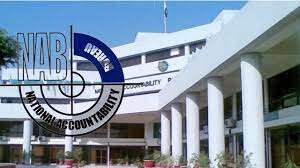ISLAMABAD: PTI chairman Imran Khan and ousted Prime Minister has filed a petition with the Supreme Court challenging the coalition government’s recent amendments to the National Accountability (NAB) Ordinance.
PTI Chairman contended that amendments will “virtually eliminate accountability of any white-collar crime committed by a public office holder”. PTI chairman said the NAB law changes would destroy the country.

The bill, along with the one on election reforms, was passed by the National Assembly and Senate last month. After its approval from both houses, the president’s assent was required for it to become law.
However, President of Pakistan Dr Arif Alvi has sent back the bills, following which the government convened a joint sitting of the NA and Senate, which approved them. Alvi again refused to sign them, terming them “regressive”, and sent them back, but constitutionally, 10 days after a joint sitting passes a bill, it becomes law even if the president rejects it.

In the petition filed today, the ex-premier named the Federation of Pakistan through its secretary Law and Justice Division and the NAB through its chairman as respondents in the case.
In his request, Imran requested the court to adjudicate upon a question of “great public importance with reference to the enforcement of fundamental rights of citizens under articles 9 (security of a person), 14 (inviolability of dignity of a man, etc), 19A (right to information), 24 (protection of property rights) and 25 (equality of citizens) of the Constitution.
NAB amendment
The NAB (Second Amendment) Bill 2021 states that NAB’s deputy chairman, to be appointed by the federal government, would become the acting chairman of the bureau following the completion of the tenure of the chairman.
The bill has also reduced the four-year term of the NAB chairman and the bureau’s prosecutor general to three years. After approval of the law, NAB will not be able to act on federal, provincial or local tax matters. Moreover, the regulatory bodies functioning in the country have also been placed out of NAB’s domain.
It says that “all pending inquiries, investigations, trials or proceedings under this ordinance, relating to persons or transactions … shall stand transferred to the concerned authorities, departments and courts under the respective laws.”
It has also set a three-year term for the judges of the accountability courts. It will also make it binding upon the courts to decide a case within one year. Under the proposed law, it has been made binding upon NAB to ensure the availability of evidence against an accused prior to his or her arrest.
According to one of the key amendments, the act “shall be deemed to have taken effect on and from the commencement of the National Accountability Ordinance 1999”.
I am an experienced writer, analyst, and author. My exposure in English journalism spans more than 28 years. In the past, I have been working with daily The Muslim (Lahore Bureau), daily Business Recorder (Lahore/Islamabad Bureaus), Daily Times, Islamabad, daily The Nation (Lahore and Karachi). With daily The Nation, I have served as Resident Editor, Karachi. Since 2009, I have been working as a Freelance Writer/Editor for American organizations.










